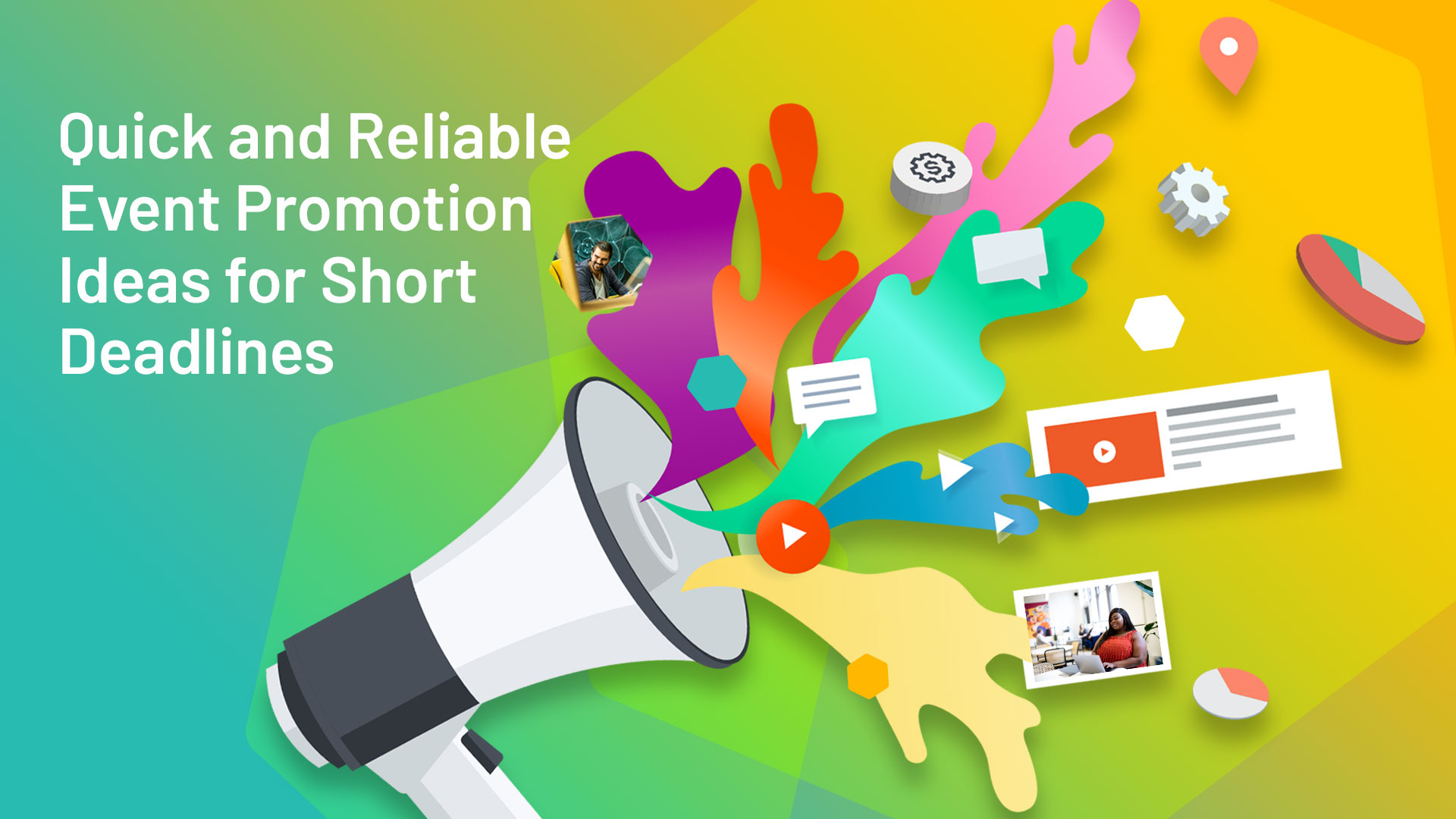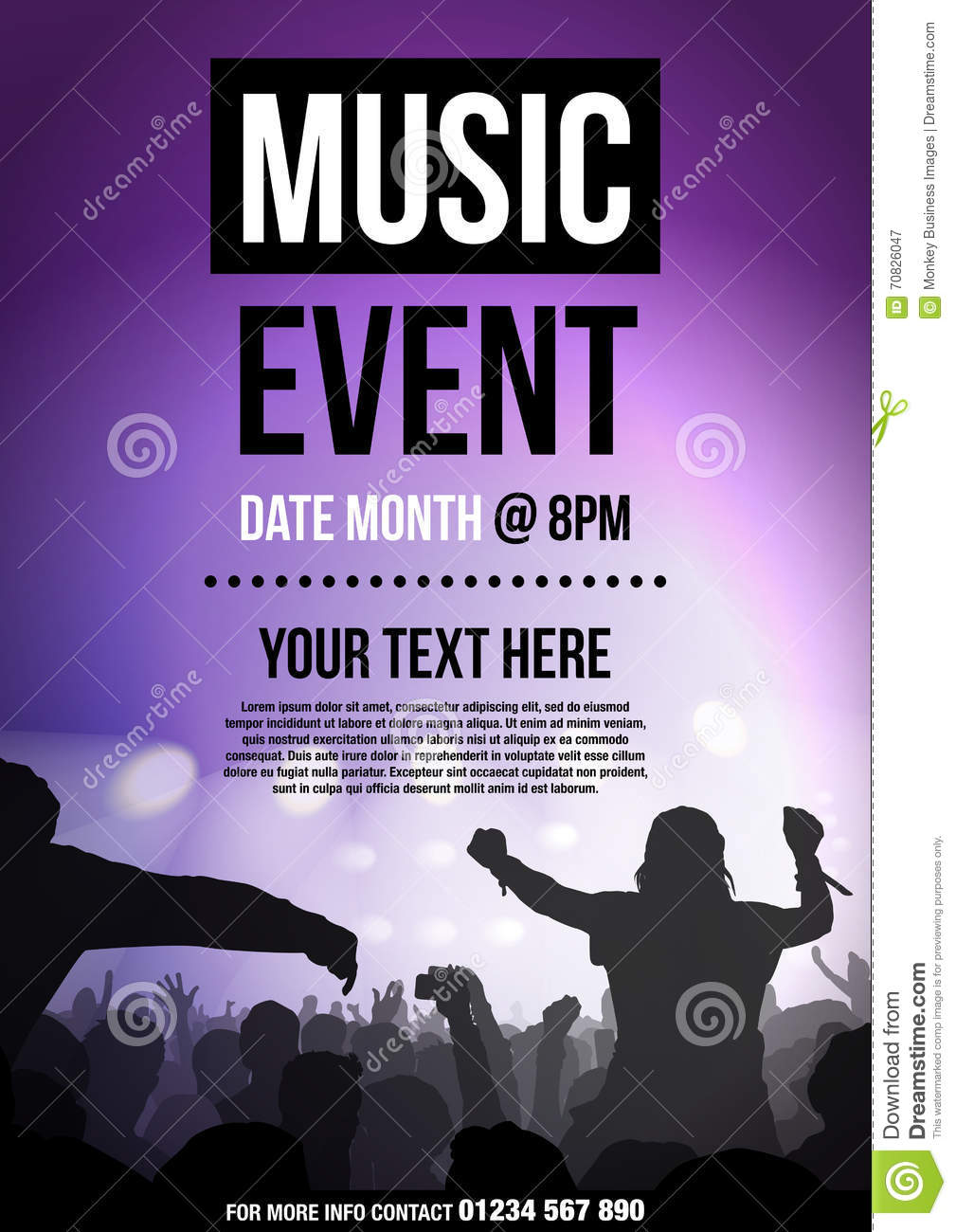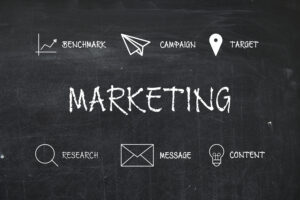Top Event Advertising
In today’s fast-paced world, event advertising has become a crucial aspect of promoting any event.
Whether it’s a concert, festival, trade show or conference, effective advertising can make all the difference in attracting the right audience and ensuring the success of the event.
In this blog, we will delve into the many different facets of event advertising in English language and explore some effective ways to reach your target audience and create buzz around your event.
From traditional media to digital marketing, we will examine all the key strategies that you can employ to make your event stand out from the rest. So if you’re looking to take your event promotion to the next level, read on!

1. The Importance of Sharing Your Event with the Media: A Guide
Are you excited about your upcoming event but struggling with event advertising? Well, worry no more because we have got your back! In this blog post, we will share with you the importance of sharing your event with the media, and how to make the most out of it.
Sharing your event with the media can bring a lot of exposure to your event, and it’s essential to get the word out to as many people as possible. Not only will it help with ticket sales, but it can create a buzz around your brand and increase visibility in the market. In this guide, we will show you how to navigate the media and get the coverage that you need.
Defining your budget is an essential part of event advertising, and it’s crucial to set realistic goals before reaching out to the media. Once you know how much you can allocate for advertising, you can decide which media outlets to reach out to and how much you can offer them. This will help you secure the coverage you need while keeping within your budget.
To sell more tickets and drive revenue for your event, leverage event discovery sites for free advertising. These sites have millions of potential attendees searching for events to attend, and they are free to post on. So, make sure to take advantage of it.
When it comes to event marketing, face-to-face promotion strategies are still highly effective. Attend trade shows and other events in your industry to promote your own event and network with people who can help you reach a larger audience.
Setting goals and objectives for your event advertising is crucial to help you stay on track and measure your success. Take advantage of social media as it’s an excellent platform to promote your event and reach the broadest possible audience.
You can also personalize your advertising to create more meaningful connections with potential attendees and increase attendance.
Finally, choosing the right platform is essential for your event advertising. Utilize media outlets that align with your event goals, budget, and target audience. This way, you can make the most out of your advertising budget and reach the people who matter most.
In conclusion, sharing your event with the media is essential for event advertising. We hope that this guide has shown you how to maximize your visibility and increase attendance. So, don’t be afraid to reach out to the media and get the word out about your upcoming event. Good luck and happy advertising!
2. Defining Your Budget: An Essential Part of Event Advertising
Welcome to the exciting world of event advertising! You’ve made it through the first section of our blog and now it’s time to dive into the essential task of defining your budget.
As we mentioned earlier, setting goals is crucial in order to effectively evaluate your advertising campaign and ensure it meets your timetable. Defining your budget is arguably the most important piece of the puzzle. Without a budget, it’s easy to overspend or underspend, and miss out on potential revenue.
But don’t worry, with the flexibility of digital advertising, there are many options for you to choose from when determining your budget. And with our guide, we’ll ensure that you’re well-equipped to make the right choices.
The options for budgeting and advertising are endless, so we recommend signing into your Google Ads account and familiarizing yourself with the available tools. You can specify daily budget amounts, choose networks and locations for your ads to appear, and even set start and end dates for your campaign.
Remember, your budget doesn’t have to break the bank! It’s all about finding a balance that works for your event and your goals. So take some time to evaluate your resources, explore your options, and develop an advertising plan that will attract attendees and drive revenue.
By setting a solid budget, you’ll be on your way to successful event advertising. Keep reading for more tips and strategies on how to sell more tickets, use social media to promote your event, and choose the right platforms for your advertising needs.
Get excited for the potential success of your event and the positive impact of effective advertising. The possibilities are endless!
3. How to Sell More Tickets and Drive Revenue for Your Event
Are you ready to boost ticket sales and drive revenue for your upcoming event? Look no further! In this section, we will provide you with some essential tips and strategies to help you sell more tickets and increase your profits.
First and foremost, make sure your sales team is utilizing a B2B CRM such as Zoho CRM to close deals quickly and efficiently. When your salespeople have the proper tools and technology, they can contact leads more effectively and close more sales.
Next, incentivize your sales team to sell more tickets by offering bonuses or rewards for hitting certain targets. You could offer them gift cards or even something as simple as a company-wide recognition for exceeding their goals.
But, don’t just rely on your sales team to sell tickets. Take advantage of free event discovery sites to get your event in front of a larger audience. By promoting your event on these platforms, you can increase your event’s visibility and attract a wider range of attendees.
In addition to free advertising, it’s important to allocate a portion of your budget to paid advertising to target specific audiences with the right messaging. By investing in targeted advertising, you can increase ticket sales and drive revenue for your event.
Personalization is also key in event advertising. Create targeted marketing messages for different segments of your audience based on their interests and preferences. Personalization can help you connect with attendees on a deeper level and increase your chances of selling more tickets.
Finally, make sure you’re utilizing social media to its fullest potential to promote your event. Create social media posts that are visually appealing and shareable. Utilize event hashtags to increase your event’s reach, and consider running social media ads to attract more attendees.
By following these tips and strategies, you can sell more tickets and boost revenue for your event. With a little bit of planning and effort, your event will be a huge success!
4. Take Advantage of Event Discovery Sites for Free Event Advertising
Are you looking for effective ways to promote your event but don’t want to expend too much of your marketing budget? Look no further than event discovery sites, which can help you advertise your event for free! In this section, we’ll explore how you can take advantage of these sites and some tips and tricks for optimizing your listings.
First, let’s talk about what event discovery sites are. These sites are platforms that aggregate information about events happening in your area and make it easier for users to find and attend them.
Examples include Eventbrite, Meetup, and Facebook Events. By listing your event on these sites, you can potentially reach a wider audience and increase registrations, all without spending a penny on advertising.
But just listing your event on these sites isn’t enough. To truly maximize your exposure, you need to follow some best practices. Here are a few tips to keep in mind:
- Choose the right sites: Not all event discovery sites are created equal. Do some research to determine which ones are most popular in your area or relevant to your target audience.
- Optimize your listing: Make sure your event title and description are eye-catching and compelling. Use keywords that potential attendees might search for, and include all relevant details, such as date, time, location, and ticket prices.
- Use imagery and videos: Listings with visual content tend to perform better, so consider including images or even videos of your event.
- Encourage social sharing: Make it easy for potential attendees to share your event on social media by including social sharing buttons on your listing.
By following these tips, you can increase the visibility of your event and potentially drive more registrations. And the best part? It won’t cost you a cent! So why not take advantage of the power of event discovery sites and get your event noticed by a wider audience?
5. Understanding Event Marketing: Face-to-Face Promotion Strategies
You’re on the right track with your event advertising strategy, but have you considered the power of face-to-face promotion strategies? Understanding event marketing is key to creating an unforgettable experience for your attendees.
Start by defining your budget and setting goals and objectives for your event advertising campaign. Then, take advantage of event discovery sites for free advertising and use social media platforms to reach a broader audience.
But don’t overlook the importance of face-to-face interaction. Attend conferences, trade shows, and fairs to promote your brand and engage with your audience directly. Personalization is the key to capturing attention and driving engagement.
Choose the right platforms to complement your face-to-face promotion strategies. By building a strong brand presence offline and online, you’ll create a memorable event experience that drives revenue and leaves attendees excited for more.
By understanding event marketing and the power of face-to-face promotion strategies, you’ll elevate your advertising efforts and create a successful event that stands out from the crowd. So, go ahead and make all the necessary preparations for a winning event advertising campaign. Your attendees will thank you for it!

6. The Importance of Setting Goals and Objectives for Your Event Advertising
As you continue to plan for your event advertising, it’s important to remember the significance of setting clear goals and objectives. This step may seem obvious, but it’s crucial to the overall success of your campaign.
To begin, think about what you hope to achieve through your advertising efforts. Do you want to sell a certain number of tickets? Attract a specific audience? Increase brand awareness? Whatever it may be, establishing a clear goal will help guide your decision-making and keep you on track.
Once your goal is in place, it’s time to set objectives. These are specific, measurable steps you’ll take to reach your goal. For example, your goal may be to sell 500 tickets, while your objectives could include launching a social media campaign, offering early bird discounts, and partnering with influencers to spread the word.
Having these objectives in place allows you to track progress and adjust your strategy as needed. It also helps you communicate with your team and stakeholders about the plan moving forward.
Overall, setting goals and objectives is an essential part of event advertising. By taking the time to define what you hope to achieve and how you’ll get there, you’ll be setting yourself up for success and maximizing your efforts. So go ahead, dream big, and make those goals a reality!
7. How to Use Social Media to Promote Your Event: A Comprehensive Guide
Are you ready to take your event advertising to the next level? Look no further than section 7 of this comprehensive guide – How to Use Social Media to Promote Your Event.
Social media platforms like Facebook, Twitter, and Instagram offer an unprecedented opportunity to connect with your audience and promote your event to a wider audience. But with billions of users on these platforms, it’s important to have a strategy in place to make sure your event stands out.
Luckily, this guide has you covered. From understanding the algorithms that determine what content gets seen to using hashtags to increase visibility, you’ll learn everything you need to know to create a successful social media campaign.
But don’t stop at social media – previous sections have covered the importance of sharing your event with the media, setting goals for your advertising campaign, and taking advantage of event discovery sites. By following the advice in this guide, you’ll be well on your way to selling more tickets and driving revenue for your event.
So what are you waiting for? Start planning your social media strategy and get ready to see the results. With the power of social media and the guidance of this comprehensive guide, the sky’s the limit for your event advertising success.
8. Planning Ahead for Successful Event Advertising Campaigns
Are you ready to take your event advertising campaigns to the next level? Then read on for some top tips on planning ahead to ensure successful results!
When it comes to promoting your event, it’s never too early to start planning your advertising campaign. As our previous sections have shown, defining your budget, setting goals and objectives, and utilizing social media and event discovery sites, are all crucial elements of a successful campaign.
But another important factor is being able to anticipate last-minute promotion and engagement tactics. Sometimes it’s the unexpected marketing strategies that can make all the difference in generating buzz and driving ticket sales.
One great way to ensure success is to provide a place for attendees to share their excitement about the event, whether through guest posts on social media or by encouraging user-generated content such as event reviews, photos, and videos.
Another effective tactic is to build anticipation early on in your marketing campaigns. Tease upcoming event details and share exciting announcements to create a sense of anticipation and excitement.
And don’t forget about the power of personalization in your advertising tactics. By tailoring your messages to different audience segments, you can create a more meaningful connection with potential attendees and better incentivize them to buy tickets.
Of course, none of these tactics can succeed without having a solid event marketing plan in place. By taking the time to carefully plan and execute your advertising campaigns with a focus on brand building and engagement, you’re sure to see more success in driving revenue and increasing attendance.
So get started today and plan ahead for your next event advertising campaign with confidence and strategy!
9. The Power of Personalization in Event Advertising: Tips and Strategies
Welcome back! In our last sections, we covered everything from budgeting to social media, to face-to-face promotion strategies for your event. But now, it’s time to talk about something truly exciting – the power of personalization in event advertising.
Personalizing your event advertising is crucial to break through all the noise and reach your target audience effectively. By using data to develop strategies that engage your attendees in a unique way, you can create an unforgettable event experience.
To accomplish this, start by understanding what data you have available. Customer data and social media analytics are great sources of information to tailor your messaging and promotions. Once you have a clear understanding of your audience, you can create targeted ads that speak to their needs and interests. For instance, you might create ads about the sustainability initiatives you’re implementing if you notice your attendees prioritize eco-friendly events.
Another way to personalize your event experience is by using email campaigns. You can use information such as their name, location, and past attendance to make the communication more personalized. This builds a stronger relationship between you and the attendee, increasing loyalty and ultimately boosting ticket sales.
But perhaps the most powerful tool for personalizing your event is using relevant and high-quality content tailored to your audience. This can be anything from publishing blog posts about your event to creating social media content that your audience will find valuable. By providing them with information that is relevant to them, you’ll keep them interested and bring them back for more.
In summary, personalization is the magic ingredient that sets your event apart from all the others. By getting to know your attendees and creating messaging and experiences that speak to their unique needs and interests, you’ll create a powerful connection that fosters loyalty and drives attendance. So, go ahead and make sure you’re using all that data wisely, and get ready for an unforgettable event!

10. Choosing the Right Platforms for Your Event Advertising: A Guide
You’re almost there! You’ve defined your budget, set your goals, and created a killer event advertising campaign. Now, it’s time to choose the right platforms to promote your event.
First of all, you need to know your audience. Are they tech-savvy millennials? Do they prefer good old fashioned print ads? Depending on your target demographic, you might want to focus on social media platforms like Facebook, Twitter, and Instagram.
These platforms allow you to create paid ads that target specific demographics, interests, and behaviors. Plus, they are highly shareable, allowing your event to get in front of more eyes.
But don’t forget about event discovery sites like Eventbrite, Meetup, and Eventful. These sites are designed to help people find events in their area, and they offer several advertising options for event organizers.
For example, Eventbrite allows you to promote your event to their extensive network of event-goers, while Meetup lets you create a custom group and send targeted emails to members.
If print ads are more your style, consider local newspapers, magazines, and flyers.
While they may not have the same reach as social media or event discovery sites, they can be highly effective in targeting local audiences.
Ultimately, the key to successful event advertising is choosing the right platforms for your audience.
So take the time to research your target demographic and figure out where they spend their time online and offline. With the right combination of platforms, your event is bound to be a success!
Please visit our main website for more information and more services we offer: www.wis-consultancy.com



